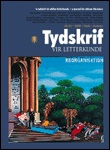Remembering colonial violence: Inter/textual strategies of Congolese authors
DOI :
https://doi.org/10.4314/tvl.v46i1.29838Mots-clés :
Congolese literature in French, colonial violence, memory, allegory, fragmentation, bodyRésumé
This article explores the Congolese remembering of the experienced colonial violence through the medium of literature. Although criticism of colonialism is not a favourite topic of Congolese writers, there exists an important corpus of texts, especially when the literary production of Congo Kinshasa and Congo Brazzaville with their politically distinct though sometimes similar experiences is taken into account. Three main strategies of writing about the topic can be distinguished: a documentary mode, an allegorical mode and a fragmented mode, which often appear in combination. Intertextuality with the colonial archive as well as oral African narrations is a recurrent feature of these texts. The short stories of Lomami Tchibamba, of the first generation of Congolese authors writing in French, are analysed as examples for a dominantly allegorical narration. Mythical creatures taken from the context of oral literature become symbols for the process of alterity and power relations during colonialism, while the construction of a heroic figure of African resistance provides a counter-narrative to colonial texts of conquest. Thomas Mpoyi-Buatu’s novel La reproduction (1986) provides an example of fragmented writing that reflects the traumatic experience of violence in both Congolese memory of colonialism and Congolese suffering of the present violent dictatorial regime. The body of the protagonist and narrator becomes the literal site of remembering.
Téléchargements
Références
...
Téléchargements
Publiée
Numéro
Rubrique
Licence
(c) Copyright Tydskrif vir Letterkunde 2009

Ce travail est disponible sous licence Creative Commons Attribution - Partage dans les Mêmes Conditions 4.0 International.


 https://orcid.org/0000-0001-6465-6584
https://orcid.org/0000-0001-6465-6584


.png)